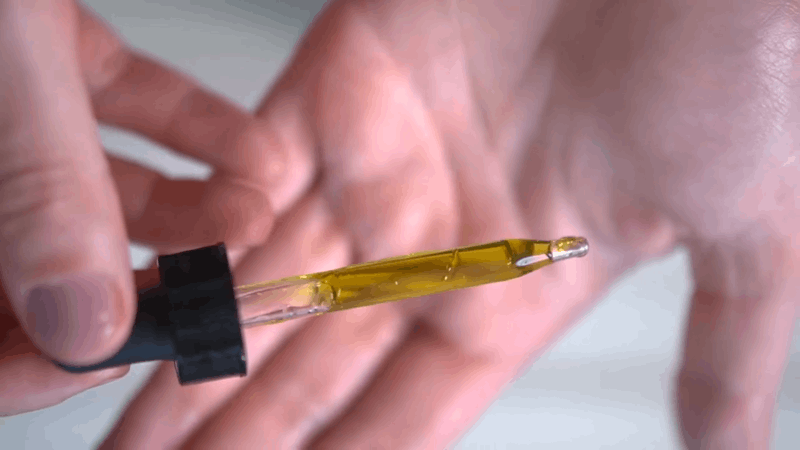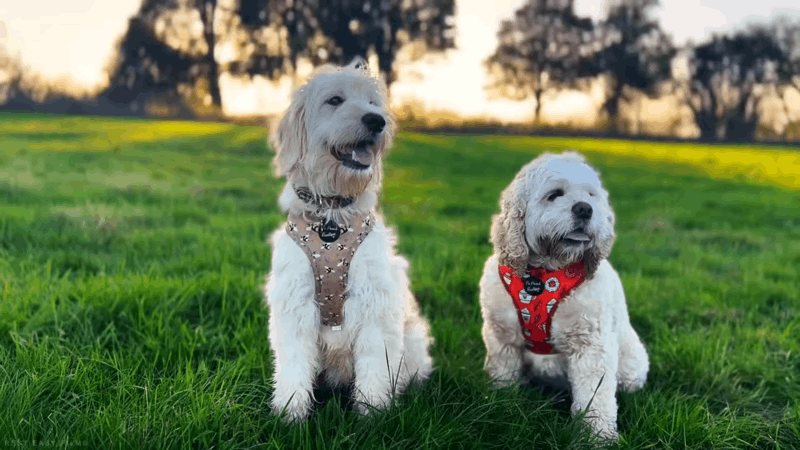No products in the cart.
Pancreatitis in dogs can be a challenging condition to manage, but many pet owners are exploring alternative treatments like CBD oil for pancreatitis in dogs. In recent years, CBD has gained attention as a possible natural remedy for managing the symptoms associated with pancreatitis in our canine companions.
We will discuss how to use CBD oil for dogs to support their health when they are coping with pancreatitis in this blog, highlighting the significance of speaking with a veterinarian for safe and effective treatment choices.
What is Pancreatitis in Dogs?

Pancreatitis in dogs is like a health issue that happens when their pancreas, an important part of their body, gets all swollen and sore. This organ usually helps them digest food and keep their blood sugar in check. However, when it becomes inflamed, it can seriously impact our beloved pals.
For dogs, this illness may be excruciating and even fatal. Prompt diagnosis and treatment are critical for managing the disease and ensuring the health of the affected dog.
Symptoms of Pancreatitis in Dogs
Pancreatitis in dogs can manifest through various symptoms, including:
- Loss of appetite: Dogs with pancreatitis often lose interest in food or show reluctance to eat.
- Vomiting: Pancreatitis can be identified by frequent vomiting, which may be accompanied by yellowish bile.
- Abdominal pain: Dogs may exhibit signs of discomfort, restlessness, or a hunched back due to abdominal pain.
- Diarrhea: Loose or bloody stools may occur in some cases of pancreatitis.
- Lethargy: Affected dogs tend to become unusually tired and may lack their usual energy levels.
- Dehydration: Vomiting and diarrhea in dogs can lead to dehydration, which may be evident through dry gums and excessive thirst.
- Fever: A mild fever might be present in some cases of pancreatitis.
- Weight loss: Dogs may lose weight over time due to reduced food intake and digestive issues.
- Increased heart rate: A rapid heartbeat can be observed in more severe cases.
If you think your dog may have pancreatitis, call your veterinarian right away. Pancreatitis can be quite serious, and your furry friend deserves the best care possible. Your dog will receive the proper care that is specifically suited to their requirements from the veterinarian, ensuring that they quickly return to being happy and healthy.
What Causes Pancreatitis in Dogs?
Even though the precise reason is frequently difficult to determine, there are several potential causes of pancreatitis in dogs. Some common factors and potential triggers include:
- Dietary indiscretion: Eating high-fat foods, table scraps, or garbage can lead to pancreatitis. Dogs’ ability to digest fat is restricted, and a quick intake of fatty foods might overwhelm the pancreas.
- Genetics: Miniature Schnauzers, Cocker Spaniels, and Yorkshire Terriers may be genetically predisposed to pancreatitis.
- Obesity: As more adipose tissue might encourage pancreatic inflammation, overweight dogs are more likely to develop pancreatitis.
- Medications: Pancreatitis in dogs has been associated with some drugs, including some antibiotics and steroids.
- High-fat diets: Consistently giving your dog a high-fat meal may eventually raise their risk of developing pancreatitis.
- Infections: Infections, such as bacterial or viral infections, can occasionally trigger pancreatitis in dogs.
- Gallbladder issues: Gallstones or other problems with the gallbladder can lead to pancreatitis.
- Trauma: Pancreatitis can also result from physical damage to the abdomen, such as a violent fall or a vehicle accident.
It’s critical to remember that while these risk factors can raise the likelihood of pancreatitis, the condition can also develop suddenly without a clear explanation. If you suspect your dog has pancreatitis or see any of the symptoms, you must consult a veterinarian immediately for an appropriate diagnosis and treatment.
Types of Pancreatitis
Pancreatitis in dogs is typically categorized based on its severity and duration rather than different types of the condition. The two primary classifications are:
- Acute pancreatitis: Acute pancreatitis is a sudden and severe inflammation of the pancreas. It often presents with intense symptoms like vomiting, abdominal pain, and dehydration. Acute pancreatitis can be fatal, necessitating immediate veterinarian care.
- Chronic pancreatitis: Chronic pancreatitis is an ongoing, protracted pancreatic inflammatory condition. Less severe symptoms could include weight loss and sporadic episodes of digestive trouble such as periodic vomiting or diarrhea. Managing chronic pancreatitis typically involves dietary changes and ongoing veterinary care.
Regardless of the type or severity, pancreatitis in dogs requires prompt attention from a veterinarian to provide appropriate treatment and prevent potential complications.
Can Dogs Die from Pancreatitis?
Dogs might die from pancreatitis if the condition is severe, untreated, or if complications develop. Pancreatitis can be a life-threatening condition for dogs because it can lead to a range of serious health problems, including:
- Organ failure: Severe pancreatitis can cause damage to the pancreas, liver, and other nearby organs. Organ malfunction or failure as a result of this may be deadly.
- Shock: Pancreatitis-related discomfort and inflammation can result in shock, a potentially fatal disease where there is insufficient blood flow to important organs.
- Dehydration: Pancreatitis’ frequent vomiting and diarrhea can cause severe dehydration, which, if not treated right once, can be fatal.
- Infection: Secondary infections, which can be dangerous and difficult to treat, can occasionally result from pancreatitis.
- Complications: Additional complications from pancreatitis include blood clot formation, respiratory problems, and heart-related disorders. If not properly managed, these consequences could become life-threatening.
Early diagnosis and appropriate treatment are essential in managing pancreatitis in dogs and preventing severe complications or death. If you suspect your dog has pancreatitis or see any signs, get early veterinary care to ensure the best possible outcome. Timely intervention can greatly improve the prognosis for dogs with pancreatitis.
Is Pancreatitis in Dogs Curable?

Pancreatitis in dogs is typically not considered curable, especially in cases of chronic pancreatitis. Rather, it is a condition that is long-term managed.
Controlling symptoms, raising the dog’s quality of life, and averting consequences are the three main objectives of treatment. Conversely, dogs that receive timely and adequate medical attention are frequently able to recover from acute pancreatitis.
What is the Best Medicine for Pancreatitis in Dogs?
Treatment for pancreatitis in dogs varies based on the dog’s specific needs and any potential complications. Commonly used medications and treatments include:
- Pain medications: Pain management is crucial in pancreatitis treatment. NSAIDs, avoided due to their potential to worsen the condition, are replaced with safer pain relief options like opioids or other analgesics prescribed by veterinarians.
- Anti-nausea medications: Dogs with pancreatitis may vomit and feel nauseous. Medications like maropitant (Cerenia) or ondansetron can help relieve these symptoms and prevent dehydration.
- Antibiotics: If your dog shows signs of infection or if the pancreatitis is quite serious and has caused additional problems, your vet might prescribe antibiotics to tackle any bacterial infections.
- Digestive enzyme supplements: For dogs with chronic pancreatitis, vets may suggest enzyme supplements to aid digestion and ease the pancreas’s burden, enhancing nutrient absorption.
- Fluid therapy: Intravenous fluids are often administered to dogs with pancreatitis to maintain hydration and correct electrolyte imbalances.
To customize the right treatment plan for your dog’s pancreatitis, please work closely with your veterinarian. They’ll consider how serious the problem is, whether there are any extra issues to deal with, and how your dog is doing overall. You can ensure that your animal companion receives the appropriate care in this way.
The treatment should be closely monitored and adjusted as needed to meet your dog’s unique needs.
Dog Food for Pancreatitis
The primary goals are to reduce fat content and provide easily digestible, high-quality ingredients. Here are some key considerations:
- Low-fat content: Look for dog food labeled as “low-fat” or “digestive care.” Ideally, the diet should have less than 10% fat by dry matter. High-fat diets can aggravate pancreatitis.
- Limited ingredients: Simple, limited-ingredient diets can be easier for dogs with pancreatitis to digest. Avoid foods with long ingredient lists or complex ingredients.
- Digestible carbohydrates: To offer energy while being gentle on the digestive tract, the diet might include carbohydrates like sweet potatoes or rice.
- High-quality protein: Make sure the dish comprises top-notch, readily assimilated protein sources. Chicken and turkey are often well-tolerated.
- Prescription diets: Consult with your veterinarian about prescription diets specifically designed for dogs with pancreatitis.
- Wet vs. dry food: Wet dog food can be easier to digest and may be preferred for dogs with pancreatitis. The ideal choice will depend on your dog’s unique requirements; discuss this with your veterinarian.
- Feeding schedule: It’s often recommended to feed smaller, more frequent meals to dogs with pancreatitis to reduce the workload on the pancreas.
- Avoid table scraps: Refrain from giving your dog table scraps or high-fat treats, as these can trigger pancreatitis or worsen existing symptoms.
- Gradual transition: When switching to a new diet, do so gradually over several days to avoid digestive upset.
It’s important to monitor your dog’s response to the recommended diet and communicate with your veterinarian if any alterations are required. Keep in mind that each dog’s tolerance for particular foods can differ.
How Long Does It Take for Pancreatitis to Heal?
Pancreatitis in dogs heals at different rates depending on severity, with moderate instances potentially improving in a few days to a week with treatment, while severe cases may take several weeks.
Chronic pancreatitis is managed rather than fully cured, requiring ongoing care to prevent flare-ups and maintain a good quality of life. Regular monitoring by a veterinarian is crucial for all cases to adjust treatment and ensure the dog’s well-being.
CBD Oil for Pancreatitis in Dogs: Is It Safe?

The use of CBD oil for pancreatitis in dogs is a topic that should be approached with caution. Some pet owners and veterinarians have explored CBD as a potential treatment for various canine ailments, however, to understand its effectiveness and safety in dogs with pancreatitis fully, more research is required.
Pancreatitis can be a complex and potentially serious condition, and introducing new substances without professional guidance may lead to complications or interfere with prescribed medications.
It’s crucial to emphasize that the quality and safety of CBD products for dogs can vary significantly. Choose a high-quality product that is specially created for dogs if you and your veterinarian decide to include CBD oil in your dog’s treatment plan. Always follow your veterinarian’s advice and constantly monitor your dog’s reaction to any new treatments.
Pet CBD Club is a reliable and safety-conscious choice for purchasing CBD products for dogs and cats. They prioritize quality and transparency, offering pet owners peace of mind when using their trusted CBD solutions for their beloved pets.
Conclusion
CBD oil for pancreatitis in dogs is a topic of interest for many pet owners seeking alternative treatments. To explore the potential benefits of CBD oil in managing pancreatitis, it is crucial to involve a veterinarian who can provide expert guidance tailored to your dog’s unique needs. Prioritizing your dog’s well-being and seeking professional advice are essential when considering CBD oil for pancreatitis in dogs.
Hello, I am Hazel Bennett, an experienced copywriter specializing in the fascinating topic of CBD for dogs. With a passion for pet wellness and extensive knowledge of CBD’s potential benefits, I am here to provide you with informative and engaging content.



